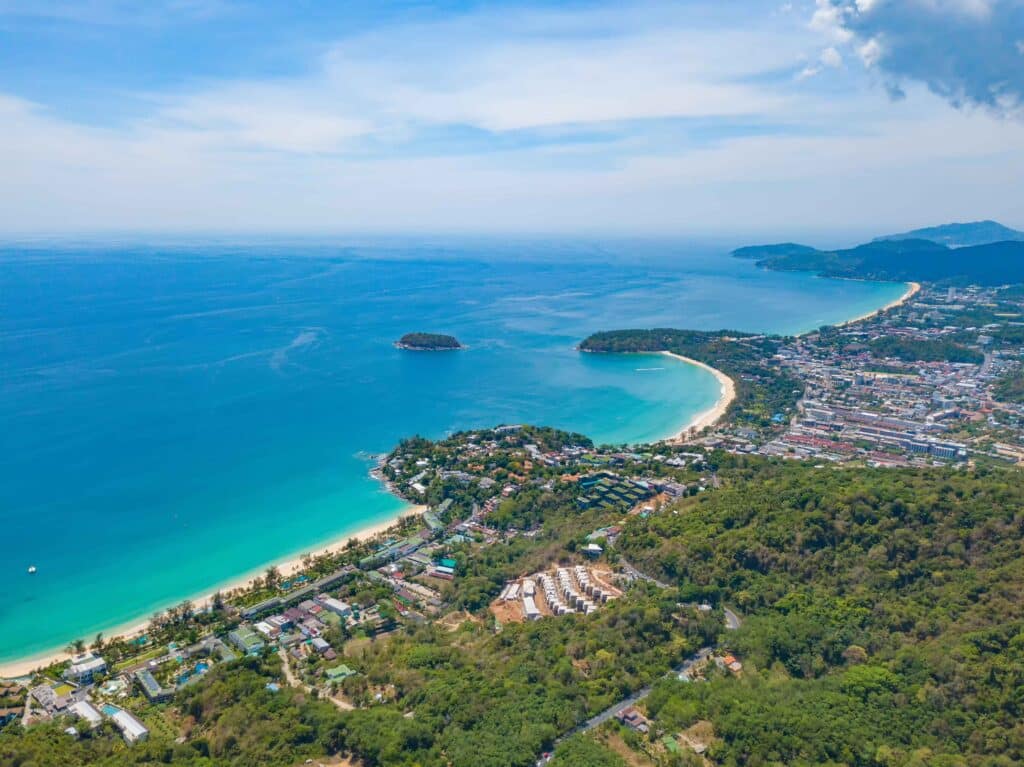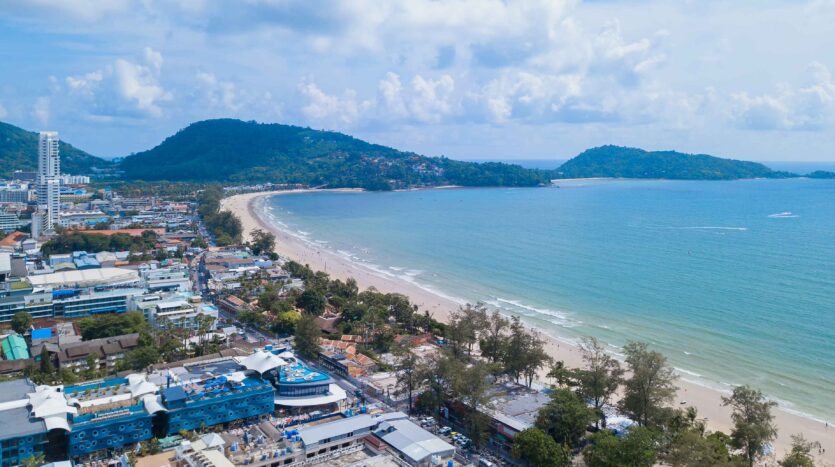Why Location Matters: Choosing the Right Spot for Your Phuket Investment
When investing in property — especially in a vibrant, island-market like Phuket — location isn’t just a buzzword. It’s the backbone of your investment’s performance. The right spot can drive high occupancy, strong resale value, and minimal headaches. The wrong spot can leave your property idle, hard to rent, or difficult to sell.
In this post, we’ll walk through five key location-based factors that determine a Phuket property’s success, and show you how to apply them when picking your next investment with Property Management Phuket.

1. Proximity to Key Attractions & Infrastructure
Beaches, Views & Access
Properties that are walking distance (or a short drive) from Phuket’s beaches, viewpoints, or main tourist draws always command higher interest from renters. Many holiday-goers want a quick stroll to the sand, sunsets, or local dining — not a long transfer.
Transport & Connectivity
A property near major roads, ease of access to Phuket International Airport, or upcoming transit lines offers a huge advantage. For example, the planned Phuket Light Rail Transit will connect airport to central and southern districts, increasing the appeal and value of properties along its route.
Similarly, improved road networks, tunnels (e.g. Kathu–Patong) or highway expansions boost accessibility.
Tip: Always map out travel time from the property to the airport, hospitals, markets, and tourist hubs. What feels “close” on a map may not translate well in Phuket traffic.
2. Market Demand & Rental Type Fit
Short-Term vs Long-Term Rental Appeal
- Short-Term / Holiday Rentals: Best in tourist zones — beaches, nightlife, restaurants. Locations like Patong, Bang Tao, Kata, Karon see the most dynamic seasonality and tourist demand.
- Long-Term / Expat Rentals: Better in quieter, more residential zones with schools, supermarkets, hospitals — places like Cherngtalay, Rawai, Kamala. Many expats stay months, not weeks.
Seasonality & Demand Fluctuations
A property in a hotspot might thrive during high season but suffer empty gaps off-season. Conversely, a non-touristic location may have steadier year-round occupancy if geared correctly (expats, long-term renters).
You as property managers should match your marketing strategy to each location’s demand curve.
3. Infrastructure, Utilities & Services
Even in paradise, a property is only as good as its support systems.
- Reliable Utilities: Water, electricity, sewage — outages or weak supply can ruin guest experience.
- Internet & Connectivity: Fast, stable Wi-Fi is a must for nearly every visitor (remote workers, families, etc.).
- Local Services & Amenities: Grocery stores, pharmacies, clinics, restaurants, convenience stores — these matter daily. A place three miles away from the nearest 7-Eleven can be frustrating for renters.
If a property is in a “beautiful but remote” zone, the cost and logistics to keep it well-maintained (staff travel, transportation of goods) rise steeply.
4. Appreciation & Resale Prospects
A location’s value growth potential is fundamental to your exit strategy.
- Upcoming Projects & Zoning Plans — Watch for urban expansion, new roads, resort developments, public transport lines. Areas near these investments often appreciate faster.
- Scarcity & Land Availability — Beachfront or sea-view lots are limited; once the nearby land is gone, the value for existing ones tends to rise faster.
- Reputation & Prestige — Established areas like Bang Tao, Surin, Layan command premium positioning. Many investors “pay for the zip code” more than the building itself.
Phuket’s tourism recovery, expanding international arrivals, and improved connectivity have already pushed property demand in Bang Tao, Kamala, Patong and surrounding high-traffic zones.
5. Risks & Challenges of the Wrong Location
Getting the location wrong can sabotage your investment. Here are some common pitfalls:
- Low Visibility & Poor Access: If guests struggle to find or reach you, you’ll earn lower ratings, fewer repeat bookings.
- Overcrowded / Noisy Spots: Being too close to bars, nightclubs, traffic arteries may deter families or luxury renters.
- Overreliance on One Market: If your area is too seasonal or tied to one referral market (e.g. only beach lovers or diving tourists), you’ll struggle when that market dips.
- Regulatory & Permit Limitations: In some zones, building height, land coverage, or environmental restrictions may limit your development or expansion plans.
As one analysis of Thai property risks states: “Poor location and low liquidity — even a stylish, well-built unit may struggle if far from amenities or attractions.”
Putting It All Together: Location + Management = Success
Even in prime zones, your property needs excellent management and alignment with the right guest profiles. That’s where Property Management Phuket comes in:
- We evaluate each property’s location for market fit, demand type, and infrastructure.
- We tailor marketing strategies to match your zone (holiday, expat, long-stay, niche).
- We monitor upcoming developments & zoning changes so you stay ahead.
- We optimize rental yields by pricing by season, demand curve, and service bundling.
Conclusion
When investing in Phuket real estate, “location matters” isn’t just a slogan — it’s a critical filter in your due diligence. Your decision on where to buy will influence:
- How often your property is rented
- What guests you attract
- How easy operations and maintenance are
- How much your property appreciates over time
- How attractive it is when you eventually sell
By understanding the five location factors above and leveraging our expertise at Property Management Phuket, you can choose properties that are not just beautiful, but fundamentally smart investments.







